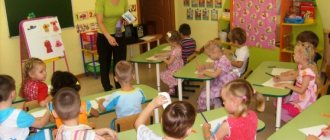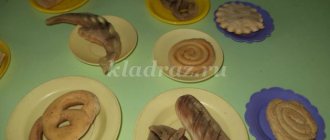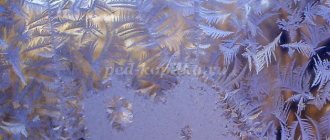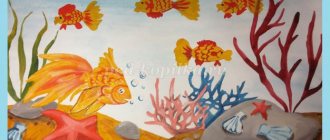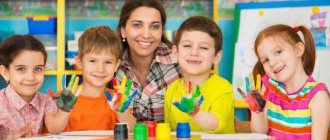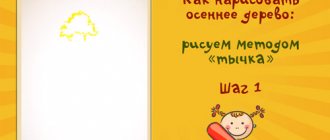Summary of GCD in kindergarten on experimental activities for the middle group
Summary of direct educational activities on experimental activities using TRIZ elements for the middle group “Friends for Toshka”
The summary will be of interest to teachers who use TRIZ in their work. Goal : developing the ability to make soap bubbles and explain their production. Objectives : 1. Activate children's knowledge about the properties of soap and water; 2. To promote the ability to think, analyze, summarize the results of the experience of obtaining soap bubbles, and independently conduct “research” with water and soap. 3. Exercise the ability to select homogeneous definitions 4. Develop mental operations (analysis, comparison, generalization) in the process of experimentation; 5. Cultivate observation and interest in experiments, responsiveness to the emotional state of a fairy-tale character. Materials and equipment: bars of soap with different scents, cocktail straws, basins for all children, glasses, plates, napkins. Preliminary work : excursion to the laundry;
monitoring the properties of soap during cultural and hygienic procedures; reading: K.I. Chukovsky “Moidodyr”, A.L. Barto “The Dirty Girl”, Russian folk tale “Bubble, Straw and Bast Shot”, outdoor game “Bubble”. Course of direct educational activities
Educator : Guys, an extraordinary guest came to us today, and to find out who it is, guess the riddle: I am gentle, smooth in flight, if the holiday is “The Most Important.” For children, like air is needed, I am cheerful - ... Children : Balloon. (The teacher shows the children a balloon; the emotion “sadness” is drawn on it). Educator : A balloon came to visit, and his name is Toshka. Let's say hello to him and smile at him. Children : Hello, Toshka! Educator : Guys, look, what is Toshka’s mood? Children : Toshka is in a sad mood. Educator : How did you know what was sad? Children : Because the corners of his lips are downturned and his eyes are sad. Educator : Why is he in a sad mood? Children : Mom scolded, offended, quarreled with friends, no friends Game “Good, bad” TRIZ. Educator : Toshik told me that he has no friends at all. Is it good to be without friends? Why? Children : Good, because you don’t need to share with anyone, you can sit in silence and sleep. Educator : Maybe it’s bad without friends? Children : It’s bad because there is no one to play with, look at books, have fun, tell your secret, play with toys. Educator : So Toshka is sad without friends, so he turned to us today with a request to find him friends, just so that they are at least a little like him. What kind of friends do you think we can find for him? Children's answers: Balls, balls, soap bubbles (If children find it difficult to answer, consider Toshka his shape, why he flies, what he is filled with. Help children determine that soap bubbles can be friends). Educator : Guys, what are we going to make soap bubbles out of? Children : From water, from soap, from shampoo Educator : Shall we help Toshka find friends? And in order to help him, we will go to a magic laboratory, where all the objects are magical. I have a magic box, it contains an item with which you can get soap bubbles. (The teacher shows the box). Educator : To learn a subject, you need to get acquainted with it. And in this matter we have assistants. What guys? Children : Eyes, ears, mouth, nose, hands. Educator : And now I suggest you guess what kind of object this is. Our assistants will help us with this. (The teacher opens the box slightly.) Educator : Our first assistant is the nose. Smell it, just don’t look into the box, what can he say about the item? Which subject? Children's answers: Fragrant, fragrant, fragrant. Educator : Second assistant - hands. What are they talking about? Children's answers: What shape is this object: rectangular, round, oval. Educator: The third assistant is the ears, listen to how it sounds. Children's answers: The object does not make any sounds. Educator: Will a mouth and a tongue help us? Children's answers: No, you cannot taste unfamiliar objects. Educator: You can’t put unfamiliar objects in your mouth! Can you guess what this item might be? Let's review how you described this item. Children: It is fragrant, fragrant, rectangular, oval, smooth, hard, and does not make any sounds. Educator : Let's dream up with you. “Fantasy game” TRIZ. Educator : What could this be? What is fragrant? Children : Perfume, shampoo, melon, banana... Educator : What is rectangular? Children : Table, window, sofa... Educator : What is oval? Children : Egg, candy... Educator : What is smooth? Children : mirror, table, watermelon, .. Educator : What is hard? Children : Stone, iron, wood.. Educator : What can not make any sounds? Children : Stone, plate, mug... Educator : Well done, they named a lot of objects. What item is in our box? This item must combine all these qualities. Children : Soap. Educator : That's right, this is soap! (opens the box) Educator : You told a lot about this item, but what is it for? Children's answers: Wash, wash. Educator: What is needed to make bubbles? Children's answers: Water, soap. Educator : Come to the table and see what you need. (The necessary equipment is on the table). Educator : What rules must be followed when working with soap? Children's answers: Do not touch your eyes with soapy hands; do not put soap in your mouth. (Children take their jobs, the teacher pays attention to the water). Educator : Guys, tell me, what kind of water? Children : Transparent, warm, odorless. Educator : Now take a piece of soap and dip it in water and wash it. (Children dip a piece of soap into water and lather it up). Educator : What kind of soap did it become? Children : Slippery, soft. Educator : What happened to the water? Children : The water has become cloudy, opaque, foaming, and smells of soap. Educator : They washed the soap, but there are no bubbles! What do you think needs to be done next to make bubbles? Children : Blow air into the water through the tubes Educator : Take the tubes and show how you will blow. (Children blow through a tube onto their palm.) Educator : Blow on your palm. Can you feel the cold air? Now put the tube in the water and blow into it. You can't drink this water! (Children blow through a straw into soapy water). Educator : So the bubbles appeared! What kind did you get? Children's answers: Big, small, shimmer in the light Educator: What happens to the bubbles if you touch them? Children: They'll burst. Educator : What if you blow? Children : They will fly, they are light. Educator : Do you think there is something inside the bubbles? Children : Air, we inflate them. Educator : Wipe your hands, guys. Come out, we'll play the game "Bubbles". Physical exercise “Bubbles”. Educator : Come on, bubbles, get into a jar! Children run up to the teacher and close to each other. Educator : I take a stick for blowing bubbles and put it in a jar. The teacher strokes the children's hair with his hand. Educator : Let's check if all the bubbles have collected in the jar. Calls children by name. Educator : One, two, three, I’m blowing bubbles! Children scatter around the group. Smooth music sounds - children depict the flight of soap bubbles. The music fades out - the children sit in a comfortable position on the carpet. Educator : Guys, look at Toshka, what is his mood? The teacher shows the children a balloon with the emotion “joy” drawn on it). Children's answers: Fun. Educator: Why do you think it’s fun? Children's answers : He smiles, they made him friends. Educator : I want to play with you again, do you think it’s possible to blow bubbles through such a tube? (The teacher shows a funnel with stretched woolen fabric). Children's answers: Yes, you can. (The teacher blows bubbles through a funnel and the children play with them). Educator : So you and I learned how and what to make friends for Toshka. Let's give Toshka friends, take all the soap bubbles and give friends! (children take prepared soap bubbles and blow them for Toshka) Educator : Tosha is very grateful to you for your friends and offers to play a game. Game "Yes, no!" TRIZ Educator : Now I will ask you what a soap bubble looks like, and if you agree, shout loudly “Yes” and clap your hands, and if you don’t agree, shout loudly “No” and stomp your feet: - A soap bubble looks like orange? (children “Yes”) - Does he look like a tangerine? (children “Yes”) - And what about the apples in the garden? (children “Yes”) - And for a fish, there in the pond? (children “No”) - Is a soap bubble like a globe? (children “Yes”) - What about an inflatable ball? (children “Yes”) - Does it look like a telephone? (children “No”) - And on a large tape recorder? (children “No”) - Is it round, like the sun in the sky? (children “Yes”) - And like a wheel on a bicycle? (children “Yes”) - Also, does it look like a house? (children “No”) - What about a white snowball? (children “Yes”). Educator : Toshka says goodbye to you and thanks you for your help! Let's say goodbye, goodbye Toshka! Children : Goodbye, Toshka!
We recommend watching:
Outline of GCD for children of the middle group. Wild animals GCD outline for children of the middle group. My Homeland GCD outline for preschoolers of the middle group. Topic: Transport Summary of the GCD for children of the middle group “Geometric Kaleidoscope”
Similar articles:
Summary of lessons in kindergarten in the middle group. Profession rescuer
Summary of a lesson in kindergarten “Properties of wood.” Middle group
Lesson notes for the middle group of kindergarten
Lesson in the middle group of kindergarten. Professions of rural people
Lesson in the middle group on social and communicative development
